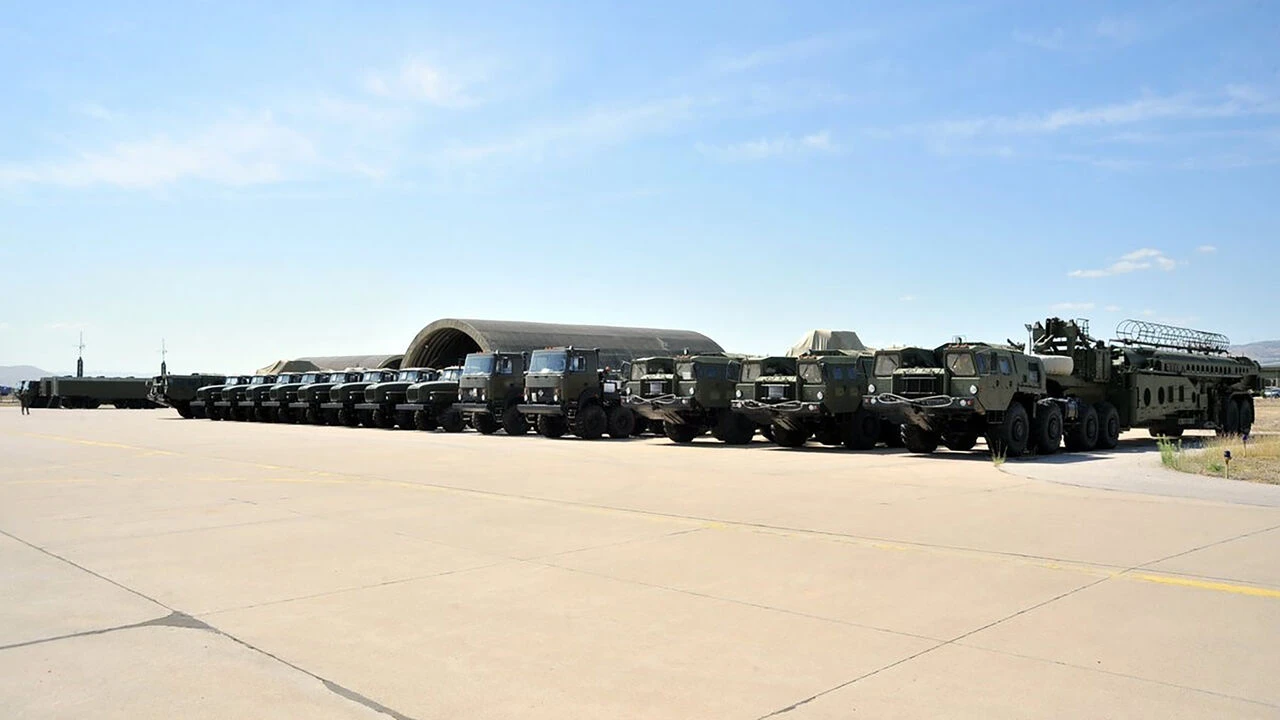A new phenomenon of Turkish politics: Economic boycott and its likely impact
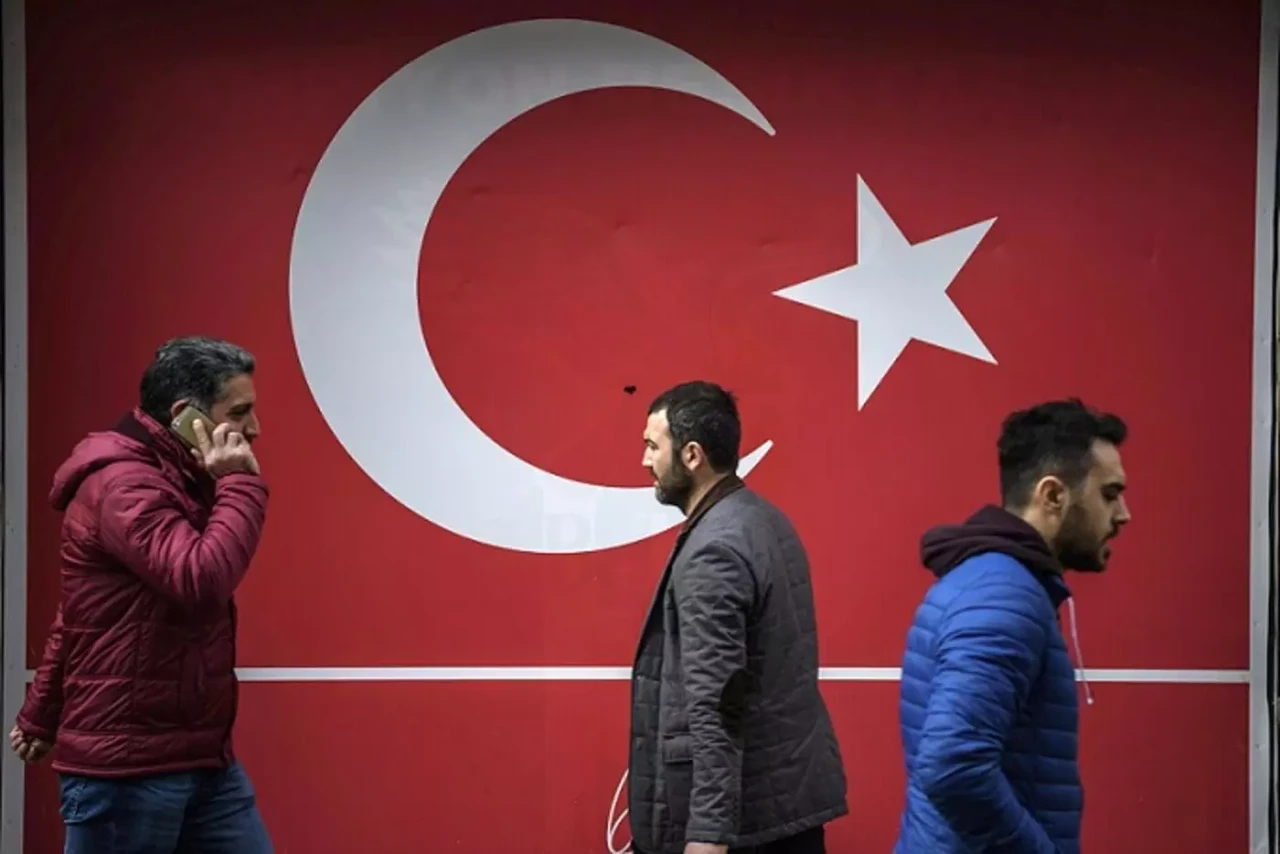 Turkish national flag on display at a bazaar in Istanbul (AFP Photo)
Turkish national flag on display at a bazaar in Istanbul (AFP Photo)
Türkiye’s main opposition party, the Republican People’s Party (CHP), has gone all the way with its support behind a comprehensive economic boycott, urging citizens to refrain from making purchases on April 2, Wednesday in protest to the arrest of former Istanbul mayor Ekrem Imamoglu over corruption charges. Social media platforms have been instrumental in organizing and amplifying the campaign.
The boycott coincided with a nationwide holiday; many people were already away on vacation, and several businesses were closed. To assess its impact, data from the national statistics agency, particularly credit card usage records, could offer valuable insights, though it is not known whether it will be made public.
However, Haluk Levent, an economy professor at Bilgi University, argues that the significance of the protests and subsequent boycott extends beyond its financial impact. He emphasizes that its political and psychological ramifications are far more consequential.
Now, there are concerns that such boycott calls could further polarize society by politicizing consumer habits. Some argue that the opposition has resorted to these tactics due to a lack of space for conventional ways of politics. On the other hand, the government has strongly condemned the boycott, with some of its supporters facing arrests or job losses as a consequence. Interior Minister Ali Yerlikaya characterized the call as “an act of sabotage against the economic independence” and “an attempted coup against the economy.”
On Tuesday, Trade Minister Omer Bolat also denounced the boycott, suggesting that businesses suffering financial losses could seek legal compensation from those promoting it. He accused the opposition of using the boycott to deflect attention from corruption and bribery scandals linked to municipalities under their control. Government officials took turns appearing on television to express their outrage.
Beyond its economic implications, the boycott’s psychological effect on voters appears to be a significant concern.
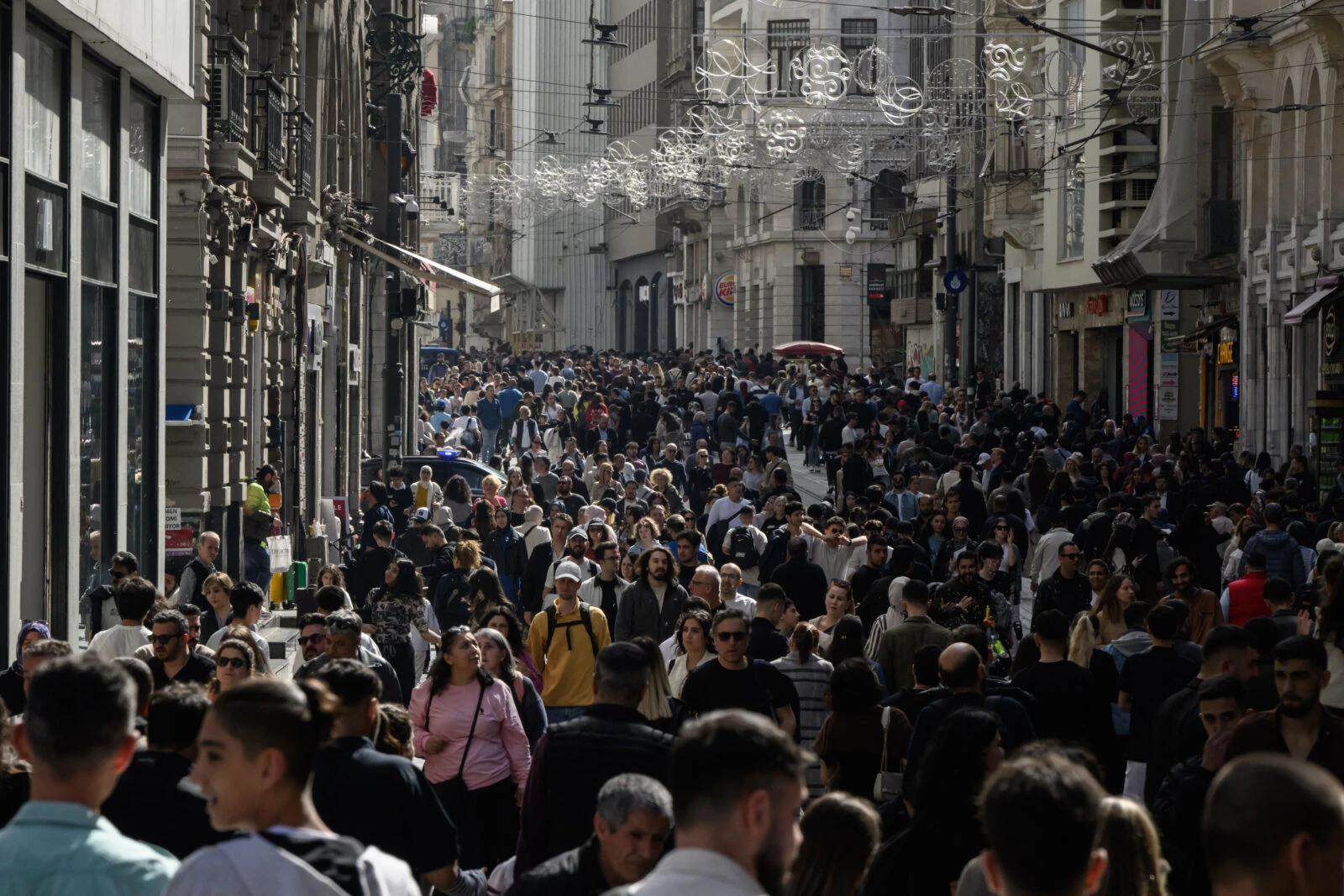
Short history of economic boycotts in Turkish political history
Türkiye’s conservative segments are no strangers to boycotts. Historically, these groups have used economic resistance against entities perceived as aligned with political forces that constrained their space for political engagement. In the late 1990s, for instance, conservatives boycotted the confectionery company ‘Eti’ due to its alleged collaboration with the military, which was perceived as the oppressor. More recently, since 2023, some of the foreign corporations operating in Türkiye have faced sustained boycotts over their support for Israel.
However, systematic boycotts are not the sole domain of the conservative side of Turkish society. Türkiye’s leftist movements have a long-standing tradition of strikes, boycotts, and shuttering businesses, dating back to the 1970s. Known by many, there has also been an ingrained cultural awareness of avoiding media outlets, artists, or institutions that openly support political factions that they oppose. Yet, these actions have, for a long time, functioned as forms of passive resistance rather than coordinated campaigns. The current boycott marks the first instance in decades of a systematic and organized economic protest.
Psychological dimensions and effects
A political scientist, Professor Seda Demiralp highlights the psychological significance of the boycott, stating, “The movement for boycott has provided people with a tangible sense of agency, which is likely its greatest source of power.”
According to Demiralp, young people—who have remained relatively disengaged from politics on the streets since the Gezi protests more than a decade ago—have taken a leading role in this mobilization, transcending party lines to drive momentum. “Now, with this boycott call, not only the youth but also the middle-class white-collar demographic may be experiencing a renewed sense of agency,” she explains.
According to her, apathy, political alienation, and inaction have long been reinforced by a pervasive belief that individual actions hold no influence over the political landscape—except through elections. However, the recent wave of arrests of big names in politics has disrupted this equilibrium. “The subsequent eruption of anger leading to street protests has yielded at least partial outcomes—or at least, that’s how participants perceive it,” Demiralp notes.
Unlike street demonstrations, which come with inherent risks, a boycott offers a form of political resistance through inaction, making participants feel empowered without direct confrontation.
However, such widespread economic boycotts risk further politicizing all facets of daily life in the country, reinforcing radical divisions among the nation. As the state apparatus increasingly securitizes every form of dissent, the country could slide deeper into polarization.
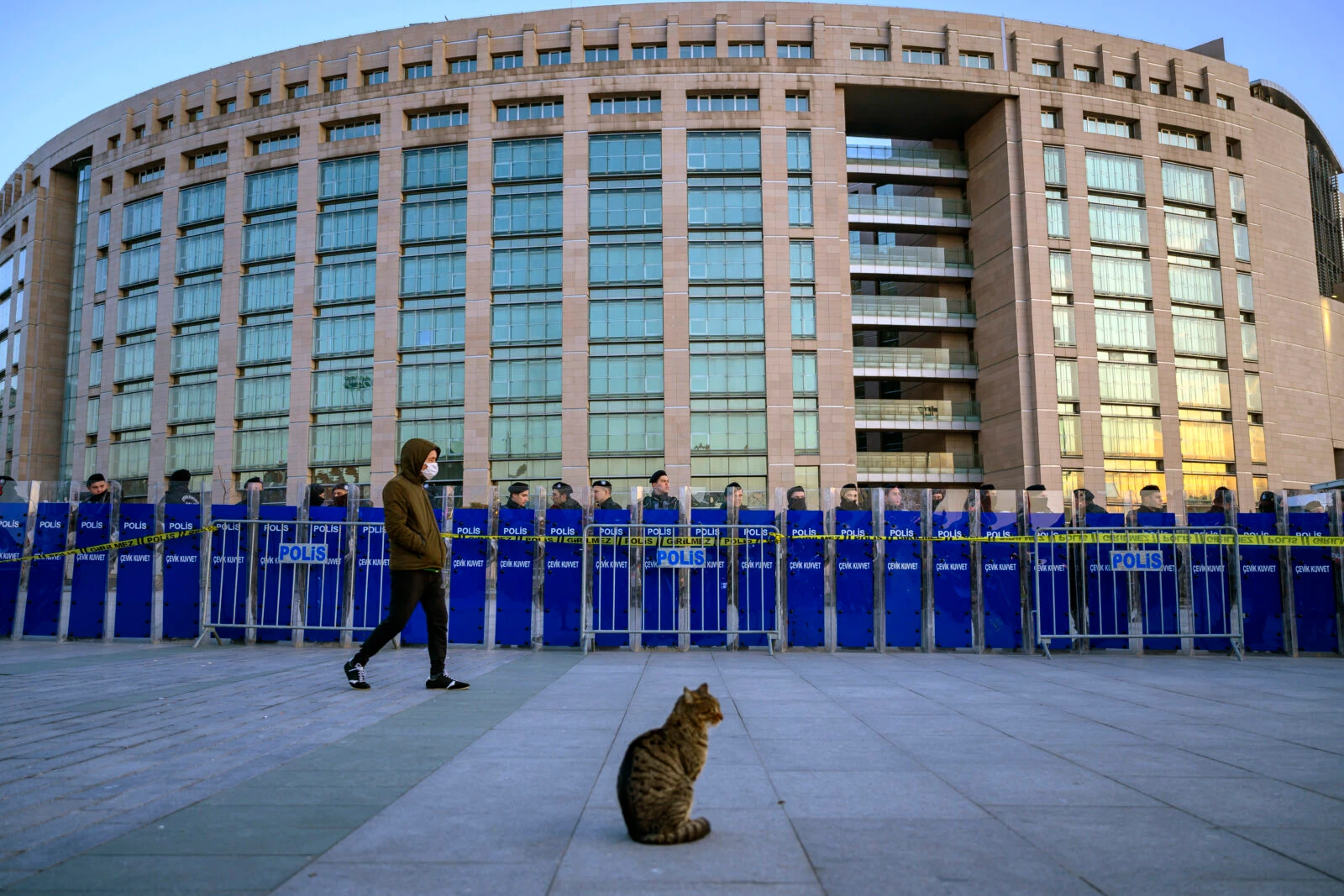
Seda Demiralp sheds light on psychological transformation by explaining the elements of the long-standing state of balance of the masses—namely, political apathy and the inertia it brings. “Previously, the opposition’s fragmentation failed to achieve coordination, in part because it was fueled by the electorate’s cognitive haze and hesitance. However, recent events have clarified the perception of a segment of society. In other words, the factors that kept the distinction between right and wrong blurred have disappeared,” which was the force for consolidating the protesters.
Economic boycott’s likely effect on small businesses
Yet, detractors of the boycott caution that halting economic activity will inevitably harm the country, particularly small businesses already struggling under dire financial conditions. Prolonged boycotts could radicalize the other side’s factions as well. Pro-government figures have labeled the movement as “economic treason” and “economic coup-plotting,” arguing that it damages domestic enterprises.
The opposition’s insistence on total participation in the boycott also contributes to escalating tensions. The public backlash against a well-known social media comedian who chose to remain silent on the issue exemplifies how neutrality is no longer tolerated in an increasingly polarized society.
Similarly, a recent incident in which a dispute over the boycott escalated into physical violence at a popular coffee chain underscores the severity of social divisions.
At this stage, even the act of purchasing chocolate has become a political statement, as consumers scrutinize companies based on their owners’ and employees’ political affiliations. This threatens social cohesion and undermines collective national responses to crises.
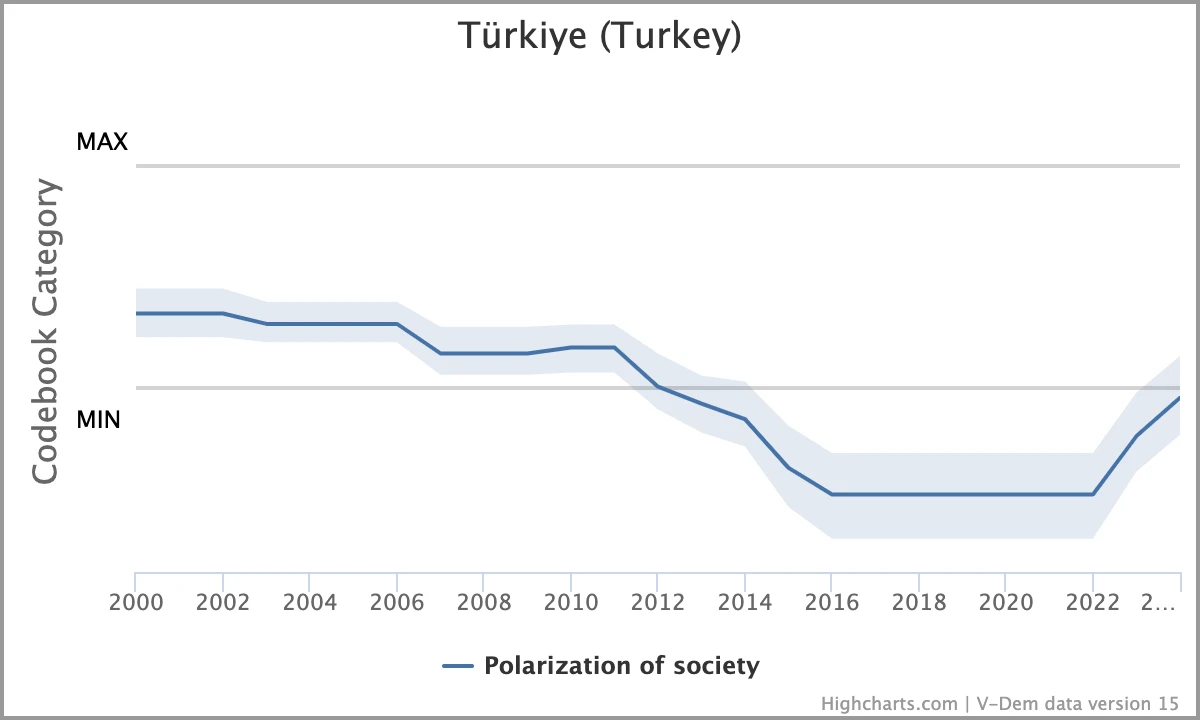
Unintentional outcome: Further polarization
Historical precedents suggest that as polarization intensifies, rational discourse gives way to rigid identity politics, sidelining substantive economic and social policy discussions.
In hyper-polarized societies, compromise becomes increasingly elusive, leading to a scenario where even political transitions fail to inspire optimism. Alongside heightened personal tensions, authoritarian tendencies are expected to gain traction, further complicating Türkiye’s already volatile political landscape.



